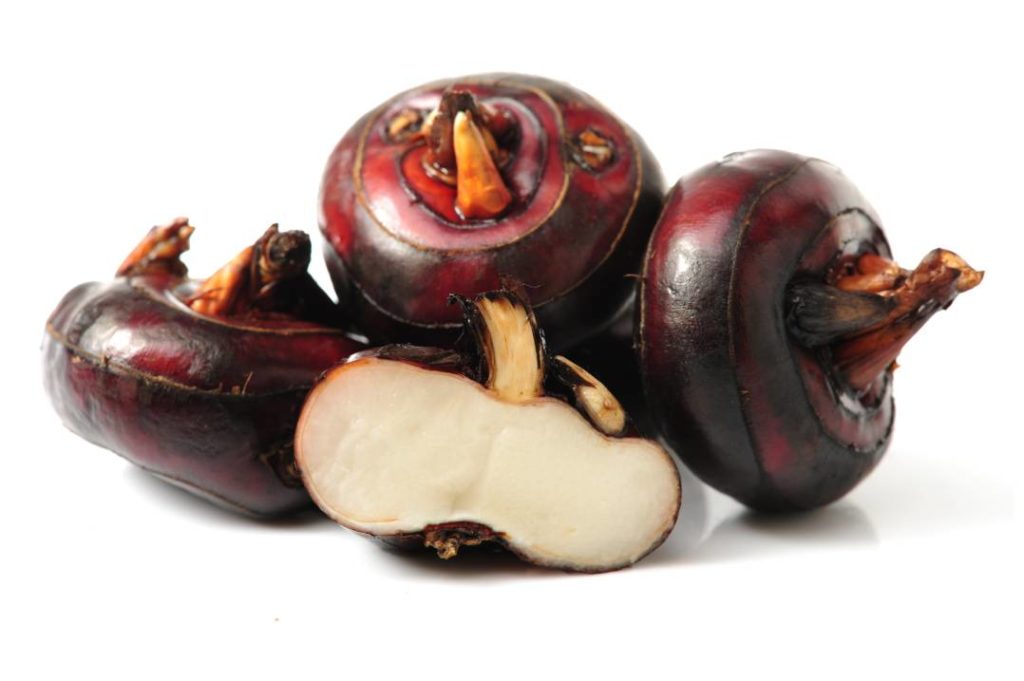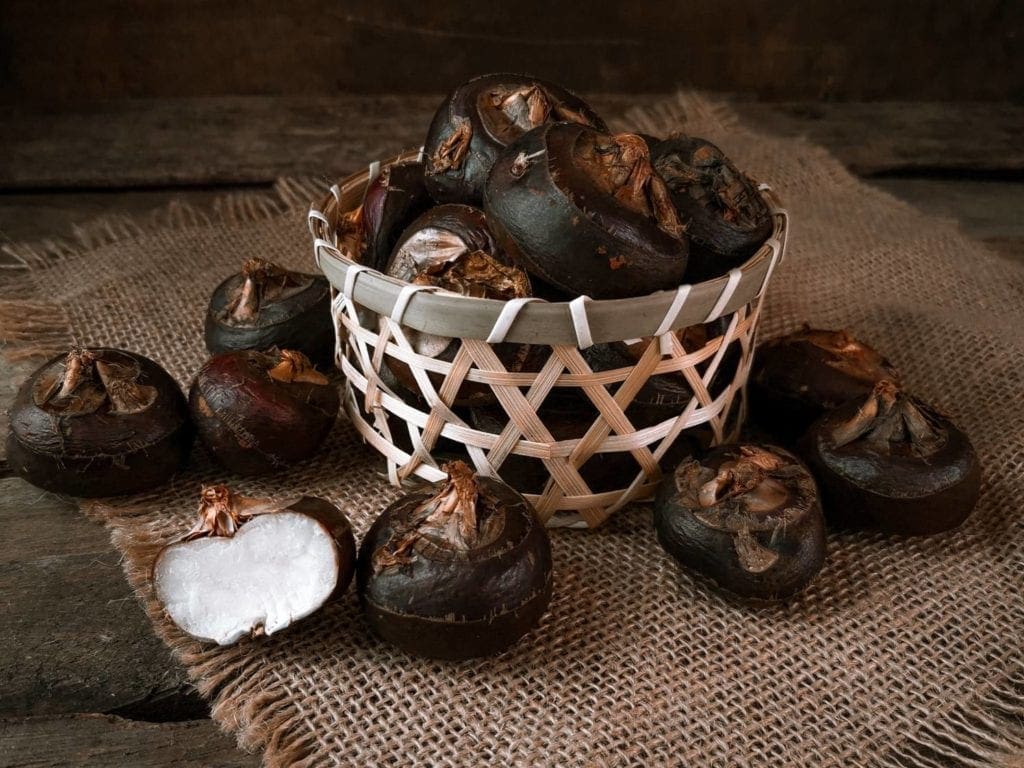Can Dogs Eat Water Chestnuts? Vet-Approved Facts & Tips
By Beth Crane
Updated on

Water chestnuts are the misleadingly named vegetables commonly found in health and Asian food shops. They can be pre-prepared in cans or packages or bought raw and prepared at home. Dogs absolutely can eat water chestnuts, but only if they’re prepared a certain way.
What Are Water Chestnuts?
Water chestnuts are not nuts at all (despite their name). Water chestnuts (or Chinese water chestnuts) are tuber vegetables that grow in marshes, ponds, muddy pools, or other watery areas. They are vegetables native to parts of Asia, including China, Japan, India, and the Philippines.
The corms are the parts of the water chestnut plant that can be consumed raw or cooked. They are common ingredients in stir fry and can also be found in canned or pickled form (although those aren’t suitable for dogs to eat).

Are Water Chestnuts Healthy for Dogs?
In small portions, water chestnuts are a very healthy, low-calorie snack for dogs.1 Water chestnuts provide lots of key vitamins and minerals for dogs and offer a satisfying crunch. The vitamins and minerals most beneficial to dogs that are found in water Chestnuts include:
- Vitamin B: It regulates glucose in the body and can contribute to the healthy functioning of the nervous and immune systems. Vitamin B can also help regulate hormones and maintain a healthy metabolism.
- Potassium: Potassium is essential for the control of electrical impulses in the body. These impulses play an important part in the function of the heart, brain, and nervous system. Potassium also contributes to healthy muscles and aids digestion.
- Manganese: Manganese helps dogs metabolize protein and carbohydrates correctly and helps create fatty acids.
- Copper: Water chestnuts are a great source of copper, which contributes to the functions of red blood cells, helps the body absorb iron, and contributes to a healthy muscular system.
Water chestnuts are very low-calorie, making them the ideal occasional treat for dogs on a diet. They also have a very high water content, making them useful for hydration.
How Should I Prepare Water Chestnuts for My Dog?
Water chestnuts should be peeled, whether feeding them raw or cooked, as the peel is very tough and presents a choking hazard. Before giving them to your dog, ensure the water chestnuts are chopped into pieces to prevent choking and only give them plain. They can be boiled or fried in a very small amount of oil, but don’t add any other ingredients.
Additional ingredients such as onions and garlic are often cooked with water chestnuts, but they are toxic to dogs and shouldn’t be given.

Are There Any Risks to Giving My Dog Water Chestnuts?
While water chestnuts are a tasty and healthy snack for dogs, there are a few potential risks. As stated previously, the skin of water chestnuts is very tough and is a choking hazard for dogs, so removing it before serving is essential to keep your dog safe.
Water chestnuts also contain lots of fiber, which can cause gastrointestinal upset if too much is eaten at once. Giving the whole corm of the tuber can also be a choking hazard, so cutting them up into bite-sized pieces is recommended to prevent this.
Can My Dog Eat Canned Water Chestnuts?
Dogs shouldn’t eat canned water chestnuts because they are often packed with sodium, which can harm dogs. Dogs that eat too much sodium (salt) can suffer from salt toxicity, which can even be deadly if large amounts are consumed.
- Depression
- Ataxia (uncoordinated gait)
- Seizures
- Weakness
- Collapse
- Tremors

Can Dogs Eat Other Types of Chestnuts?
There are a few types of chestnuts that dogs can eat, but some are extremely toxic to dogs. A true chestnut that is nutritious for dogs is the American or Sweet chestnut. These nuts contain omegas 3 and 6, which can contribute to a healthy brain, skin, and coat.
On the other hand, horse chestnuts are incredibly toxic to dogs. Horse chestnuts contain aesculin and other saponins, which are very harmful to dogs and can affect their brain and nervous systems.
- Severe vomiting
- Diarrhea
- Depression
- Seizures
- Ataxia (uncoordinated gait)
- Coma
If you’re unsure of the type of chestnut your dog is eating, stop them from eating it and take them to the vet.

Final Thoughts
Water chestnuts are a great addition to a dog’s diet as an occasional treat, provided you’ve checked with your vet. Water chestnuts retain their crunch when cooked and are healthy but low-calorie, meaning your dog gets a satisfyingly crunchy treat packed with vitamins that won’t affect their waistline. Water chestnuts can be given cooked or raw, but ensure never to give your dog canned or pickled varieties since they contain too much salt.
See also: My Dog Ate a Conker: Vet-Approved Facts & Safety Guide














